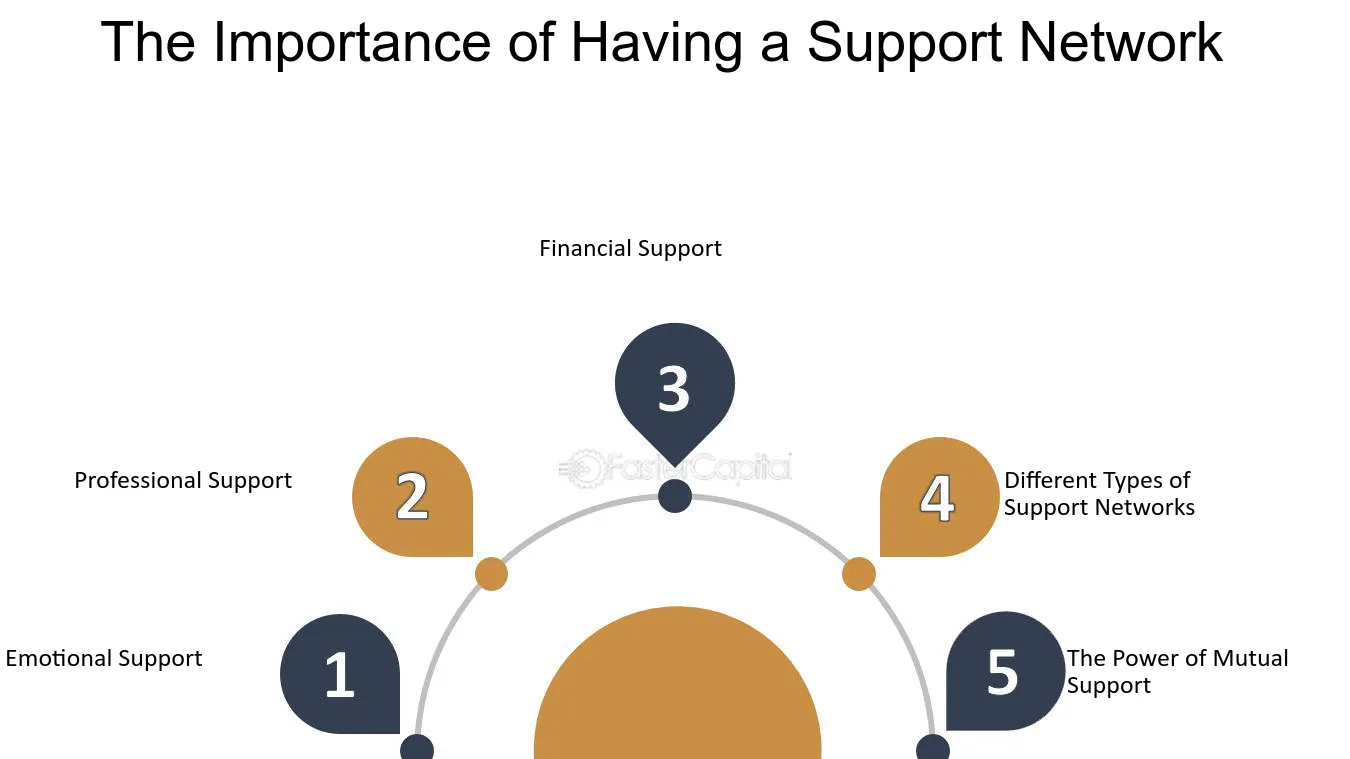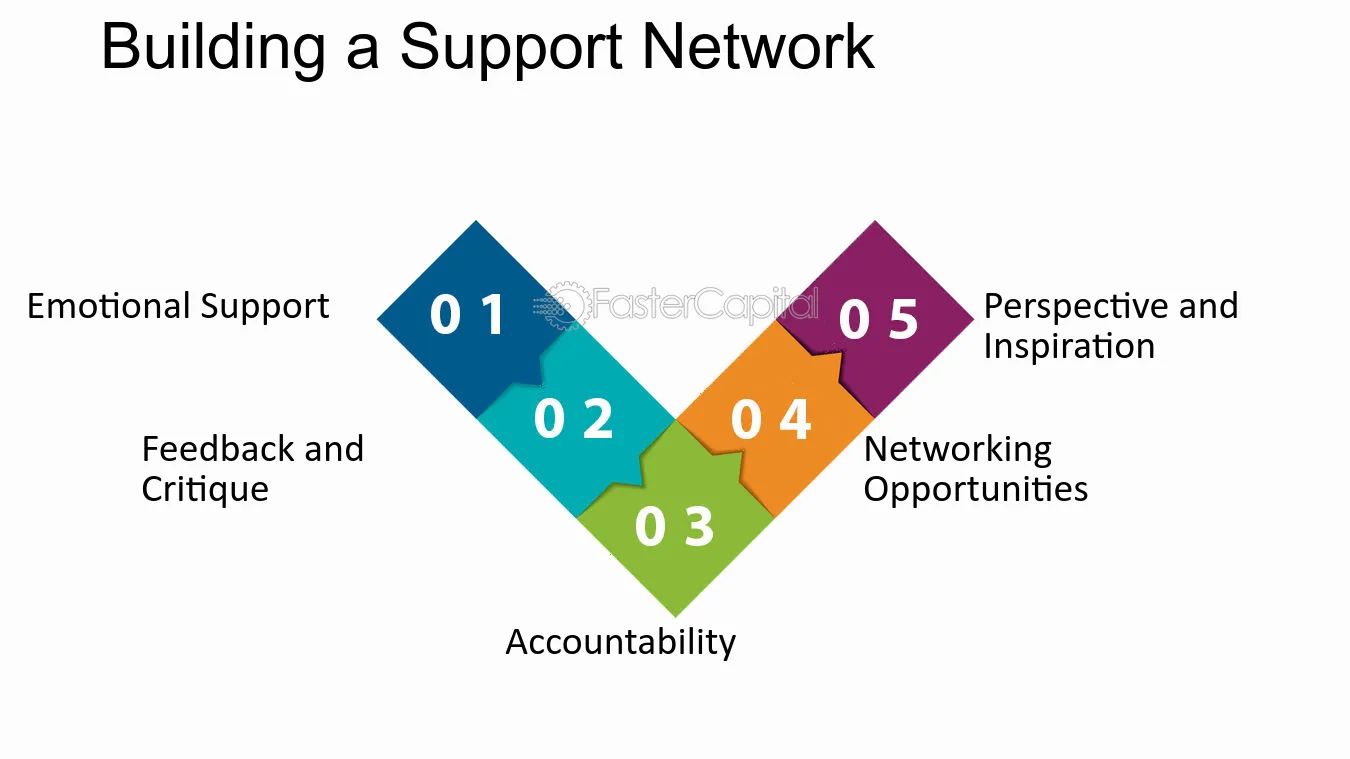Linked by Care: Navigating Support Networks for Health and Wellness
In life, we all face challenges that can sometimes feel overwhelming. Whether it’s dealing with personal struggles, navigating professional hurdles, or coping with unexpected events, having a support network can make all the difference. Support networks provide a valuable source of encouragement, advice, and empathy during difficult times, helping individuals to cope and thrive in the face of adversity. However, finding and nurturing these networks isn’t always easy.
In this article, we’ll explore the importance of support networks and provide some tips for finding and maintaining them.

The Importance of Support Networks
The importance of support networks cannot be overstated, as they serve as lifelines in times of need and pillars of strength during challenging circumstances. Here’s a deeper exploration of why these networks are vital:
Emotional Resilience:
Life often throws curveballs, from personal setbacks to unexpected crises. During these times, having a support network provides emotional stability and resilience. Whether it’s a comforting word from a friend or a shoulder to cry on from a loved one, knowing that there are people who care can make a world of difference in coping with difficult emotions.
Validation and Understanding:
Support networks offer a safe space for individuals to express their thoughts and feelings without fear of judgment. Being surrounded by understanding and empathetic individuals validates our experiences and helps us feel seen and heard. This validation is crucial for maintaining a sense of self-worth and confidence, especially during challenging times.
Perspective and Advice:
Oftentimes, we may find ourselves facing dilemmas or uncertainties where an outside perspective can be invaluable. Support networks provide a diverse range of viewpoints and life experiences, offering valuable insights and advice that can help us navigate complex situations more effectively. Whether it’s a friend’s wise counsel or the shared experiences of a support group, these perspectives can broaden our understanding and guide us toward informed decisions.
Practical Assistance:
Beyond emotional support, support networks can also offer practical assistance during times of need. From helping with daily tasks to providing financial or logistical support, friends, family, and community members can lend a helping hand when we’re overwhelmed or facing challenges beyond our control. This practical assistance can reduce stress and enable us to focus on finding solutions to our problems.
Building Trust and Connection:
Trust is the foundation of any meaningful relationship, and support networks provide an opportunity to cultivate trust and connection with others. By sharing vulnerabilities, offering support, and reciprocating kindness, we strengthen the bonds within our networks and create lasting connections that endure through both good times and bad.
Celebrating Successes:
While support networks are crucial during difficult times, they’re also instrumental in celebrating our successes and achievements. Whether it’s a promotion at work, a personal milestone, or a moment of triumph, having people to share our joy and accomplishments with amplifies the sense of fulfillment and happiness we experience. These shared moments of celebration reinforce the bonds within our networks and remind us of the importance of collective support in all aspects of life.
In essence, support networks are the scaffolding that holds us up when we’re feeling lonely, the guiding lights that illuminate our path when we’re lost, and the warm embrace that welcomes us home when we’re weary. Cultivating and nurturing these networks is not just a matter of convenience; it’s an investment in our mental, emotional, and social well-being that pays dividends in times of need and beyond.

Tips for Finding Support Networks
Identify Your Needs:
Before seeking out support networks, take some time to reflect on your needs and the type of support you’re looking for. Are you seeking emotional support, practical advice, or both? Understanding your needs can help you identify the most appropriate sources of support. You can check out here to learn how to identify your support system in great detail.
Reach Out to Friends and Family:
Your existing social circle can be a valuable source of support. Don’t hesitate to reach out to friends and family members whom you trust and feel comfortable confiding in. Be open and honest about your struggles, and don’t be afraid to ask for help when you need it.
Join Support Groups:
Support groups can provide a sense of camaraderie and understanding among individuals who are facing similar challenges. Whether it’s a local support group in your community or an online forum dedicated to a specific issue, joining a support group can connect you with others who can offer empathy, advice, and encouragement.
Seek Professional Help:
In some cases, professional support may be necessary to address specific challenges or mental health issues. Therapists, counselors, and support services can provide specialized assistance and guidance tailored to your individual needs.
Get Involved in Your Community:
Volunteering, joining clubs or hobby groups, or participating in community events can help you expand your social network and connect with like-minded individuals who share your interests and values.
Maintaining Support Networks
Once you’ve established support networks, it’s important to nurture and maintain them. Here are a few tips for doing so:
Be a Good Listener:
Show empathy and understanding when others reach out to you for support. Sometimes, just being there to listen can make a world of difference.
Offer Support in Return: Building strong support networks is a two-way street. Offer your support and assistance to others when they need it, and you’ll likely find that they’re more than willing to reciprocate.
Communicate Openly:
Keep the lines of communication open with members of your support network. Be honest about your feelings and needs, and don’t hesitate to reach out when you require assistance or guidance.
Set Boundaries:
While support networks are valuable, it’s important to establish healthy boundaries to avoid feeling overwhelmed. Don’t be afraid to say no when you need time for yourself or when you’re unable to offer assistance.
Celebrate Successes Together:
Share your achievements and milestones with your support network, and celebrate their successes as well. Recognizing and celebrating each other’s accomplishments can strengthen bonds and foster a sense of solidarity.
Conclusion
In conclusion, the journey of finding and nurturing support networks is an essential aspect of personal growth and resilience. As we navigate the ups and downs of life, having a strong support system can make all the difference in how we cope with challenges and setbacks. From friends and family to support groups and professional services, there are numerous avenues through which we can find the understanding, empathy, and practical assistance we need.
As we continue on our journey, let us remember the importance of maintaining our support networks, nurturing the connections we’ve forged, and extending a helping hand to those in need.
By working together and leaning on one another in times of need, we can overcome obstacles, celebrate successes, and build a brighter future for ourselves and those around us. Remember, in the tapestry of life, support networks are the threads that bind us together, weaving a fabric of strength, understanding, and hope.
